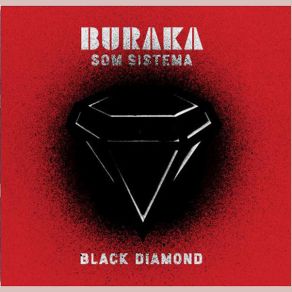Black Diamond
Download links and information about Black Diamond by Buraka Som Sistema. This album was released in 2008 and it belongs to Electronica, House, Hip Hop/R&B, Rap, Drum & Bass, Dancefloor, Dance Pop genres. It contains 13 tracks with total duration of 51:59 minutes.

|
|
|---|---|
| Artist: | Buraka Som Sistema |
| Release date: | 2008 |
| Genre: | Electronica, House, Hip Hop/R&B, Rap, Drum & Bass, Dancefloor, Dance Pop |
| Tracks: | 13 |
| Duration: | 51:59 |
| Buy it NOW at: | |
| Buy on iTunes $5.99 | |
| Buy on Amazon $5.99 | |
| Buy on Amazon $9.49 | |
Tracks
[Edit]| No. | Title | Length |
|---|---|---|
| 1. | Luanda-Lisboa | 4:21 |
| 2. | Sound of Kuduro (feat. DJ Znobia, MIA, Saborosa & P**o Prata) | 3:33 |
| 3. | Aqui Para Voces | 4:12 |
| 4. | Kalemba (Wegue - Wegue) [feat. Pongolove] | 3:53 |
| 5. | Kurum | 5:44 |
| 6. | IC19 | 4:20 |
| 7. | Tiroza (feat. Bruno M) | 4:49 |
| 8. | General | 4:04 |
| 9. | Yah! (feat. Petty) | 3:33 |
| 10. | Skank & Move (feat. Kano) | 3:57 |
| 11. | D…D…D…D…Jay (feat. Petty) | 3:46 |
| 12. | New Africas Pt. 1 | 1:52 |
| 13. | New Africas Pt. 2 | 3:55 |
Details
[Edit]Black Diamond, the exhilarating debut full-length from Lisbon's Buraka Som Sistema, will mark many listeners' first exposure to Kuduro, an Angolan style of dance music that's attracted international attention only recently despite roots dating back to the mid-'90s. The bandmembers are more than happy to serve as musical ambassadors: after an insistent warm-up track paying homage to the genre's two capital cities ("Luanda-Lisboa"), they enlist go-to global beat superstar M.I.A., along with the pioneering DJ Znobia and a few guest MCs, for "Sound of Kuduro," an unruly but unambiguous statement of purpose whose inanely effective nursery-rhyme refrain spells out, for the benefit of bewildered Anglophones, exactly what is going on here. To judge from the evidence of this album, the sound of Kuduro overlaps liberally with almost every other globalized, urban-based 21st century sound blending elements of hip-hop and techno with regional ethnic infusions, from ragga and soca to kwaito to funk carioca and even grime. (Brazilian bailé funk is an especially pertinent reference point, given the shared language and a comparable aggressively playful vocal approach; world-traveling ghetto-funk hype man Diplo's interest in the group is another relevant clue.) To get specific, though, it's not as if BSS are purists. As originators of Kuduro's heavily electronic "progressive" strain, their cross-pollinated hybrid grooves are as restlessly varied as they are relentlessly energetic, rife with unpredictable sonic shifts and dense with all manner of aural debris (sirens, bird calls, tribal percussion, industrial splutters and squelches, vocal cut-ups) flitting through their adrenalized, hard-assed beat concoctions. Hence listeners get tracks like "IC19," which swells from a skeletal dubstep throb to full-on glowstick-ready rave keyboards to a propulsive, percussive equatorial jump-up that even slips at one point into Baltimore club-styled electro breakbeats. Or "General," which is built around a scintillating Afro-pop guitar line but somehow wends its way into gleaming filter-house territory. And the less brazenly exploratory tracks are by no means less thrilling: the bouncy "Kalemba (Wegue Wegue)," featuring Angolan MC Pongolove, and the carioca-styled "Aqui Para Vocês," with Rio's Deize Tigrona, are two of the more rousing dance cuts in recent memory. Indeed, the same could be said for the entire album. One hell of an all-embracing, boundary-defying, ghetto-blasting dance party. [Compared to the original 12-track version of the album released by Enchufada, Fabric's 2009 edition adds two infectious tracks with the MC Petty, including the group's breakout hit "Yah!," which originally appeared on the From Buraka to the World EP, as well as a grime-flavored collaboration with Kano. Unfortunately, the Fabric version also subtracts two excellent harder-edged, hip-hop-inflected tracks, "Beef" and the title cut.] ~ K. Ross Hoffman, Rovi